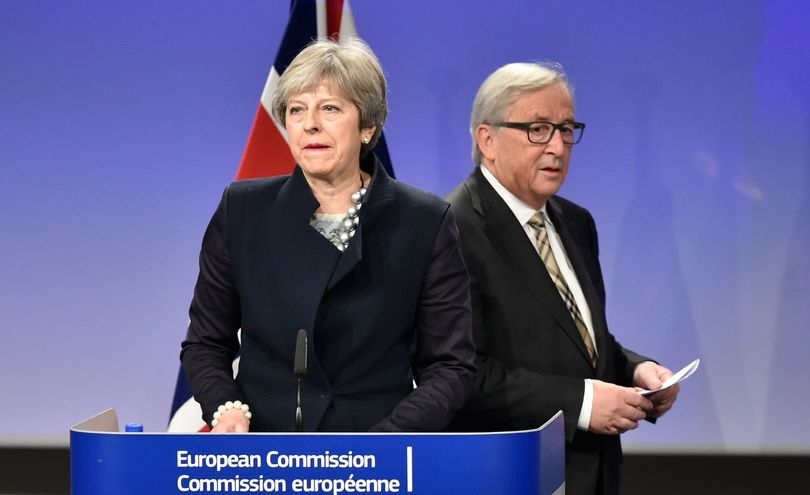Brexit in trouble
December 5, 2017 | Expert Insights

The Brexit talks have stalled as the Democratic Unionist Party, the unionist political party in Northern Ireland, said it would not accept a deal on the Irish border which saw Northern Ireland treated differently from the rest of the UK.
As problems continue to rise regarding Brexit, the value of the Pound dropped.
Background
In June 2016, Britain narrowly voted to leave the EU. The country is currently negotiating with EU officials to draw a roadmap for its exit. It is scheduled to depart at 11pm UK time on Friday 29 March, 2019.
Brexit was one of the biggest geopolitical risks of 2016 that became a reality on June 23. The referendum had attracted the attention of the whole world, as the outcome not only looks into impacting the future of UK but also bring about huge changes in the future of globalization. From a strategic perspective, Brexit may be the first wave of anti-globalization for most popular nations.
Based on its performance post the vote, the International Monetary Fund had predicted that the UK would grow at 2% in 2017. However, it lowered its forecast in July announcing that growth rate was likely to be 1.7%. Commenting on the growth, IMF said that UK’s performance has been “tepid.” Inflation is also a key reason. It has climbed to a four-year high and has thus affected consumer spending. Import prices have also gone up.
Moody's, one of the top ratings agencies, downgraded the UK by a notch from an Aa1 rating to Aa2 in 2017.
Analysis
The UK and EU negotiators have been meeting every month for the span of one week to discuss the terms and conditions of Brexit. One of the main problems that need to be resolved will be regarding the border shared with Northern Ireland. When Brexit is finalized, the border that the Northern Ireland shares with the Republic of Ireland will be the only border shared with European Union. The Good Friday agreement, which came into effect in 1999, puts an end to checkpoints, security barriers and observation posts that had existed during the period of the Troubles. However, Brexiteers fear that this would mean there would be free movement of EU citizens through these borders and would cause problems. The negotiators would have to come up with a solution that works around custom checks and also ensures that this would not be a problem for Britain as well.
The Brexit talks have stalled as the Democratic Unionist Party, the unionist political party in Northern Ireland, said it would not accept a deal on the Irish border which saw Northern Ireland treated differently from the rest of the UK. The UK government needs the support of the DUP for the Brexit talks to move forward.
Partly due to the political instability, the pound dropped by 0.7 per cent against the dollar on November 5th, 2017. This was the steepest fall witnessed by the British currency since November 2nd. Dublin has insisted Dublin that the Brexit should not result in a hard border with Northern Ireland.
“The DUP and the Conservative and Unionist party are at one in keeping the United Kingdom together, Gavin Barwell made it absolutely clear,” said Jacob Rees-Mogg, the Eurosceptic MP. “As he said, we are not going to trade on distinctions between Great Britain and Northern Ireland. That would be completely intolerable. We are the Conservative and Unionist party after all.”
UK Prime Minister, Theresa May had been given the deadline of Monday 4 December to table the offers before a European council summit on 14 December. That deadline is now past.
Assessment
Our assessment is that it has now become clear that a smooth Brexit is no longer a possibility. Britain has only till 2018 to discuss and come up with solutions for a number of issues ranging from borders to trade. There is also the “divorce bill” which has not been resolved between the negotiators. Presently, the Brexit talks have completely broken down.








Comments